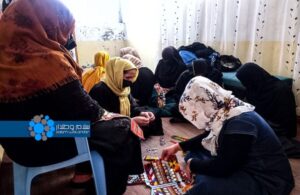ANKARA (SW) – The plight of Afghan migrants abroad has never been perfect, but the spread of the coronavirus has made the situation worse.
A number of Afghan migrants in Turkey, Iran and Europe have been grappling with job restrictions and severe lack of health facilities. According to these migrants, before the spread of the corona, they faced less work restrictions in Turkey and France; but with the rise of the virus, its work cycle has come to a complete halt.
Naqibullah Nadim is a resident of Takhar province and one of the Afghan migrants in Turkey. He told Salam Watandar that the problems of Afghan refugees in the country are getting worse every day. “After the coronavirus pandemic, the number of migrants in Turkey has increased tenfold,” he said. Lacking proper documentation is a big pain for an undocumented migrant, he said, adding the Afghan embassy in Ankara does not provide assistance to the refugees in this regard.
On the other hand, Afghan refugees in European countries living in camps said their troubles are even worse.
Shabir Ahmad Habibi, an Afghan refugee in France who lives with a number of his friends in a camp, described his troubles in this way: “For those who live in camps in France, the situation is very difficult. Especially those who are not accepted and receive the first and second negatives (for their asylum application) from the government in France. If they are not accepted by the court, they can be evicted from the camp and the money given to them is cut off and they are told to go away wherever they want. “France never deports, but imposes restrictions on the migrant who has not been accepted to either deport himself or go to another country and takes away his house and money.”
Analysts, meanwhile, say that in the early 2020s, when the Mediterranean border crossing was closed to migrants from Iran, Syria, Iraq and Afghanistan to Europe; an agreement was signed between Turkey and Germany to keep migrants in Turkey, and the European Union had a monetary obligation under the agreement.
Ahmadullah Bahawi, an expert on immigration in Turkey, told Salam Watandar that with the spread of the coronavirus in Turkey, nearly 30 percent of the country’s citizens have lost their jobs. According to Bahawi, about 4 million migrants from Afghanistan, Syria, Iran and Iraq live in Turkey. He added that the lives of migrants have become more difficult with the spread of the coronavirus and that the employment opportunities for Turkish citizens and migrants have decreased.
“Production has also declined,” he said. In 2021, the tourism industry in Turkey has weakened. It was one of the sources for revenues for the government but it declined in 2021, when the UN aid budget for the migrants was also cut. “When you want to find a job, Turkish law gives priority to its own citizens”, he said.
However, officials from the Takhar Department of Refugees and Returnees in Afghanistan have acknowledged criticisms of the government, saying that the continuing war and insecurity in recent years have led a number of residents to travel abroad regularly and irregularly. Mohammad Yasin Labib, Takhar’s director of immigrants and returnees, said the recent restrictions on migrants abroad exposes glitches associated with the irregular migration.
The International Organization for Migration (IOM) has recently announced the return of thousands of migrants from Iran and Pakistan. According to the International Organization for Migration, 26,801 undocumented migrants returned to Afghanistan from Iran last week alone, a 23 percent increase over the previous week.
ENDS








